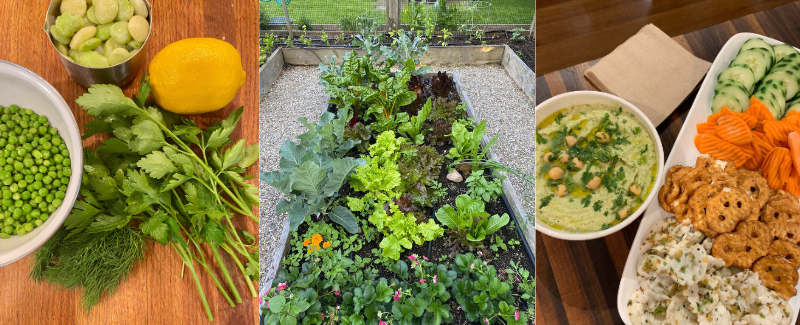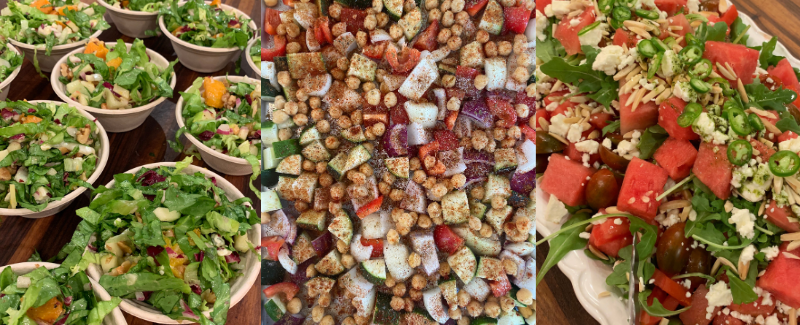Eating Clean: Do’s and Don’ts
Healthy eating is a commitment to improve your health and wellness through smarter food choices. This approach focuses on whole, unprocessed foods that nourish the body and support overall health. Rather than imposing strict limitations, clean eating encourages you to prioritize natural and nutrient-rich foods—think colorful vegetables, whole grains, and lean proteins. Let’s explore essential dos and don’ts that can help guide you on your journey to a cleaner diet.
Do: Eat lean proteins, vegetables, and fruits
Incorporating lean proteins into your diet is crucial for building and repairing tissues and maintaining a healthy immune system. Options like chicken, turkey, fish, and plant-based proteins such as legumes and tofu not only offer essential nutrients but are also low in fat, making them ideal for a clean eating plan. Equally important is the consumption of a wide array of vegetables and fruits. These provide vital vitamins and minerals that support various bodily functions from digestion to skin health. Diversifying your intake with different colors and types—dark leafy greens, bright berries, vibrant bell peppers—ensures a comprehensive nutrient profile, helping to combat deficiencies and boost overall health and wellness.
Don’t: Consume sugar products
Refined sugars are notorious for their adverse effects on health, often hiding in plain sight within our daily diets. Consuming products with refined sugars can lead to rapid spikes in blood glucose levels. These spikes are typically followed by a sharp drop, which can cause fluctuations in your energy levels throughout the day, leaving you feeling fatigued and irritable. Over time, a high intake of refined sugars increases the risk of serious health issues such as type 2 diabetes, obesity, and cardiovascular disease.
Instead of reaching for sugar-packed snacks, try natural sweeteners like fruits, which provide essential fibers, vitamins, and antioxidants. A modest amount of dark chocolate, containing at least 70% cocoa, also offers a healthier alternative. Dark chocolate is not only satisfying but also boasts flavonoids that have been shown to improve heart health.

Do: Eliminate unhealthy fats and limit dairy
Reducing unhealthy fats is crucial in any clean eating regimen. These fats, often found in fried foods, processed snacks, and baked goods, can increase the risk of heart disease and hinder metabolic health. Instead, focus on incorporating healthier fats like those from avocados, nuts, seeds, and olive oil, which can support heart health and enhance the absorption of vitamins.
Dairy products, while nutritious, can sometimes cause digestive distress and other issues for those with lactose intolerance or dairy sensitivities. If you do include dairy in your diet, you could opt for low-fat or fat-free versions to reap the benefits of calcium and protein without the added fats. For those sensitive to dairy, plant-based alternatives such as almond, soy, or oat milk can be nutritious substitutes that align well with a clean eating lifestyle, offering similar benefits without adverse effects.
Don’t: Go on a cleanse
Embarking on a cleanse might seem like a fast way to reset your diet or lose weight, but this can be misleading and potentially harmful. Many cleanses involve consuming only juices or specific liquids, which can lead to significant nutritional gaps in your diet. This deprivation can cause a range of negative side effects, from energy dips and muscle loss to disrupted metabolism and a weakened immune system. Rather than relying on quick fixes that promise rapid results, it’s healthier and more effective to adopt a balanced diet that ensures you receive all the essential nutrients your body needs to function optimally. Sustainable eating habits are key to maintaining long-term health and wellness.
Make Clean Eating Easier with Culinary Works
Eating clean involves more than just following a set of rules; it’s about creating a balanced and sustainable approach to nutrition. Remember to cut down on unhealthy fats and limit dairy, avoid restrictive diets and cleanses, incorporate a variety of lean proteins, and reduce your intake of processed sugars. By adopting these principles consistently, you’re not just dieting—you’re committing to a healthier lifestyle. If you’d like more guidance on your daily eating habits, reach out today to build a path toward lasting well-being, and of course, healthy recipes.




